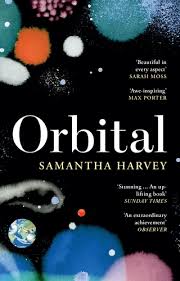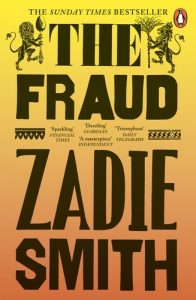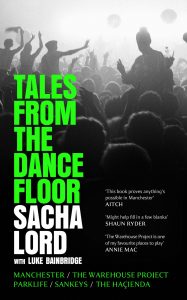Summer books – handpicked by us and the House of Books and Friends

As we gear up for a summer break, we’ve joined up with our friends at House of Books & Friends on Manchester’s King Street for some recommendations for you to pack away to read by the pool, the beach, or wherever.
An independent bookshop, café and quirky events space on King Street (across from Rosso). The shop is just now eighteen months old and it gets busier by the week as customers spread the word about the carefully curated selection of books and the beautiful setting to meet friends and make new ones.
Its space in the Manchester Club building House of Books & Friends is the brainchild of Darryl Cooke, founder of Manchester-headquartered international law firm gunnercooke, who set it up as a Community Interest Company and reinvests all profits back into running the bookshop and other related projects.

House of Books and Friends
They’re also running a series of afternoon tea dates in the grade II listed building in the heart of Manchester city centre. It’s the perfect opportunity to experience a cultural afternoon in the same building where former Prime Ministers, Winston Churchill and William Gladstone once sat.
Additionally, by indulging in afternoon tea here, you’re directly supporting your community: House of Books & Friends was created to combat loneliness and isolation in the local area.
According to Campaign to End Loneliness, 45% of adults feel occasionally, sometimes or often lonely in England, which is around twenty five million people.
The shop is purposely over staffed to enable the team of bookworms to really engage with customers, and who have provided us with some great recommendations specifically for readers of TheBusinessDesk.com.

A life-affirming, poetic journey into outer space. A team of astronauts from the International Space Station are to collect meteorological data, conduct scientific experiments and test the limits of the human body. However, what they become most interested in is the earth itself. Together, they see what makes our planet so beautiful: glaciers, mountains, oceans and deserts, across all seasons. When they hear of the death of a team member’s mother, they start to become homesick, which is worsened as a typhoon hits an island and the people they love. This is a book about the fragility of human life and the protection of the earth. It asks: ‘what is life without earth? What is earth without humanity?’
Determination by Tawseef Khan
A debut novel set in Manchester following an immigration solicitor as she attempts to fight for the rights of refugees and immigrants in the UK. Jamila runs her precious family law firm and is often woken in the middle of the night by calls from clients on the cusp of deportation. Working against the government’s ‘hostile environment’, she has no time for friends, family or herself until a breakdown forces her to look within and pursue her own happiness, whilst balancing a career that is devoted to helping others in the highest of stakes.
Kairos by Jenny Erpenbeck
Set against the backdrop of a turbulent East Berlin in the late 1980s, Kairos depicts an intense affair between a young woman and professor that mirrors the fall of the GDR. They bond over a shared love of music and art, and emotions are heightened as they attempt to maintain secrecy throughout their affair. When she betrays him with a colleague for one night, things slowly fall apart, just as the GDR itself begins to crumble. Winner of the International Booker Prize, Erpenbeck explores memory and place through beautiful writing
The Maniac by Benjamín Labatut
From the author of When We Cease to Understand the World: a dazzling, kaleidoscopic book about the destructive chaos lurking in the history of computing and AI. Following John von Neumann, a Hungarian titan of Science who emigrated to the US and invented the first programmable computer, invented game theory, pioneered AI and digital life and helped create the first atomic bomb. Labatut weaves fact and fiction to explore the power and tyranny of mathematics, from the atomic bomb all the way to the AI of today.
Imposter Syndrome by Joseph Knox
The fifth book by one of the most exciting novelists working today, but his first NOT set in Manchester. Imposter Syndrome is a fast moving, challenging story told by Lynch, a conman who gets sucked into a wider confidence trick by a rich and powerful London family. It leaves you gasping and wondering if anyone is who they say they are. (MT)

From literary London to the Jamaica’s sugar-cane plantations, Zadie Smith weaves an enthralling story linking the rich and the poor, the free and the enslaved, and the comic and the tragic.
But the great skill of this extraordinary historical novel is how it blends such wit and well-researched historical detail into a richly imagined fiction setting. (MT)
Non-Fiction
Doppelganger by Naomi Klein
Winner of the inaugural Women’s Prize for Non-Fiction, Naomi Klein leads us on a journey through the mirror world which begins when she discovers that she is consistently being mistaken for a woman with the same first name who has radically different views. At first it seemed silly to her, but suddenly she was questioning why her doppelganger had gone down such an extreme path. Klein explores conspiracy theorists, anti-vaxxers and many more characters of our digital age in this dark comedy.
Technofeudalism by Yanis Varoufakis
Capitalism is dead? Varoufakis argues that the balance of power has tipped from profit makers controlling the world back to the rent-seekers, which has fundamentally mutated capitalism. The rise of big tech has brought with it massive changes in the world economy, and ownership has fallen away to the companies that encourage renting and memberships. Despite the potential to feel dystopian in its summaries, Varoufakis concludes with an alternative reality that is not yet out of reach, offering us a possible alternative to the post-capitalist economy we seem to be veering towards.
Age of the City by Ian Goldin
Professor Goldin and Tom Lee-Devlin show why making our societies fairer, more cohesive and sustainable must start with our cities. Globalization and technological change have concentrated wealth into a small number of booming metropolises, leaving many smaller cities and towns behind and feeding populist resentment. Yet even within seemingly thriving cities like London or San Francisco, the gap between the haves and have-nots continues to widen, and our retreat into online worlds tears away at our social fabric. Particularly interesting if the reader considers Manchester’s rebuilding and development since the 1990’s.
This Time No Mistakes by Will Hutton
This book examines the last 100 or so years and offers a breakdown of how the UK has found itself in its current political situation, and what could be done to mitigate and fix the damage. Throughout, there are some strong suggestions about what is needed to start putting things right, which is appreciated. It is easy to tell people where things have gone wrong, but it is much harder to offer solutions to the problem. Those with an interest in the political history of this country will appreciate this deep dive, and it is particularly timely as a new government pledges to reform social and economic welfare.
The Laws of Connection by David Robson
Social connection is as essential for our health and happiness as a balanced diet and regular exercise. It reduces our risk of stroke, heart disease, and Alzheimer’s. It enhances our creativity and adds years to our life span, and yet many of us struggle to form strong and meaningful bonds. Robson claims that the problem lies not with our personalities but with a series of cognitive biases that stop us from fulfilling our social potential. Part one of this book covers how to make connections, while part two explores keeping them, all whilst offering tools and tips to ensure our connections feel true to ourselves.

With endorsements from best-selling rapper Aitch, Happy Mondays lead singer Shaun Ryder and Ian Brown, Lord’s book reveals some hilarious behind-the-scenes accounts and exposés on Lord’s early promoter years at seminal Manchester clubs like Sankeys, Home, The Haçienda and Paradise Factory. (MT)
How They Broke Britain by James O’Brien
It’s safe to read this damning and devastating j’accuse of the men, and with the exception of Liz Truss they are all men, who through a mixture of grifting, mendacity, lies and the lack of challenge, managed to damage this country with a harmful Brexit and a needless culture war. It’s safe to read because they’re nearly all gone now and the grown ups are back in charge. (MT)







